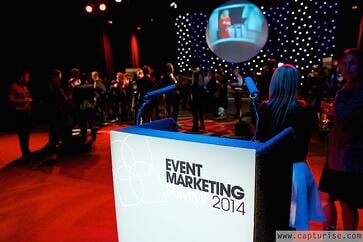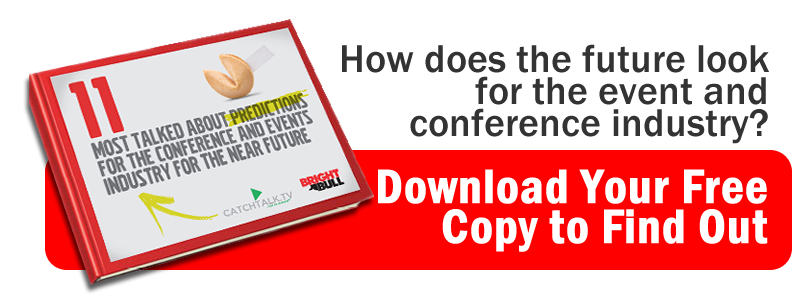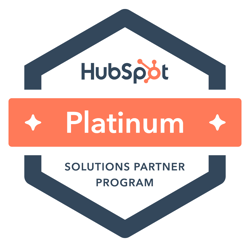It's great to see that events specifically talking about "events and conference marketing" are on the up and the newly launched Event Marketing Summit by the Global Conference Network took place just recently. Over 150 people attended - from event marketers to senior management, old friends as well as new faces.
For those that didn't attend (shame on you) but as promised, here are the top takeaways from the event:
1. Content and Community is finally top of mind
It is clear that event marketers know the value of community and content marketing and it's evident that senior management are finally becoming more intrigued and curious around the topic. I really liked the presentation from Claire Treadwell from the Arts Marketing Association where she demonstrated that when the whole business is aligned towards driving the "community thing", inevitably the results will come through. She proved it. After the talk, I was left positively interested in how a) they did away with not using LinkedIn and b) stopped using a "register now" button.
2. Marketers will need to work out their metrics and be accountable for them
Yes, there is absolutely no way out. A marketer needs to know the answer to the basic question: "What is the ROI of your marketing?". Yes, the answer will be dissected through the metrics you define, which have previously been sold to your senior management and promoted across the internal teams for transparency. There is no need to get over complicated with metrics, but marketers must know by heart the conversion rates for their events which ultimately boil down to:
- Number of Visits/Sessions
- Leads Generated
- Revenue Generated
In some cases getting started and putting everything in order to get the data right and telling you the right information is an absolute pain for a marketer, but it has to get done. Stop putting this off marketers. If you don't step up and start dealing with the not so funky side of marketing (the data and systems) then your department will continue to be perceived as an overhead and as an "execution team".
3. Social media is and can be used creatively to drive results
Daniel Gorringe from EMAP shared a very interesting and creative way to drive engagement for a couple of award ceremonies and consequently the results it delivered. This is where events marketing gets exciting, because when you know your objectives, your metrics and the results it can deliver, it gives marketing departments the driving seat.
I am really hoping to see more of these types of presentations at future events, where marketers demonstrate that yes "social media", "organic" and "inbound" channels really do drive registrations - and all without push marketing tactics and broadcasting!
4. Branding is the forefront of everything
Your event branding or that of the company, division or vertical, is now more important than ever. This is really a by product of delivering an engaged community or running successful social media campaigns etc. With so much noise competing for our target market's attention, it is ultimately your brand that will resonate with your audience.
This is no problem for those events that are yearly affairs with hundreds if not thousands of attendees, they become entities in themselves. However for organisations with smaller events in a specific vertical (or worse still in many verticals), this presents a real challenge - something that organisations really need to address sooner rather than later.
5. Go beyond email - there are so many more ways to engage
This proves the business case for using social media and content. When you have nothing else to say about your event apart from what is available on the programme and event website, you can only resort to emailing the hell out of your database and plastering the whole social media scene with regurgitated messages about your great programme in 140 words - the "me me me" approach.
However when you create valuable content (inspired by your event theme/topics) you create opportunities to distribute the content through multiple platforms and therefore highly engage and subsequently convert. Andrew Davies from TWKS refreshingly discussed this in his presentation. Once you have valuable content then email definitely becomes a powerful tool - as the panel from Terrapin confirmed.
Conclusion
While the event was pretty interesting, only a few presenters shared a story with convinced metrics and results - I hope this time next year we'll be hearing more success stories. The drinks finale was impressive as well as the food and the photography was pretty neat - thanks to capturise. You can check all the videos testimonials and details on the event marketing summit site.
Ultimately event marketers, like any other professesional attending an industry event I guess, want to know one thing: What are other people/companies doing, what results are they seeing and how can I potentially apply these learnings to my organisation. Nothing more, nothing less.
I am really looking forward to 2015 as I can sense a big shift - discussions now are definitely more geared around community, social media and more demonstrated metrics. Finally we're all starting to sing from the same hymn sheet.







Do you have any comments?